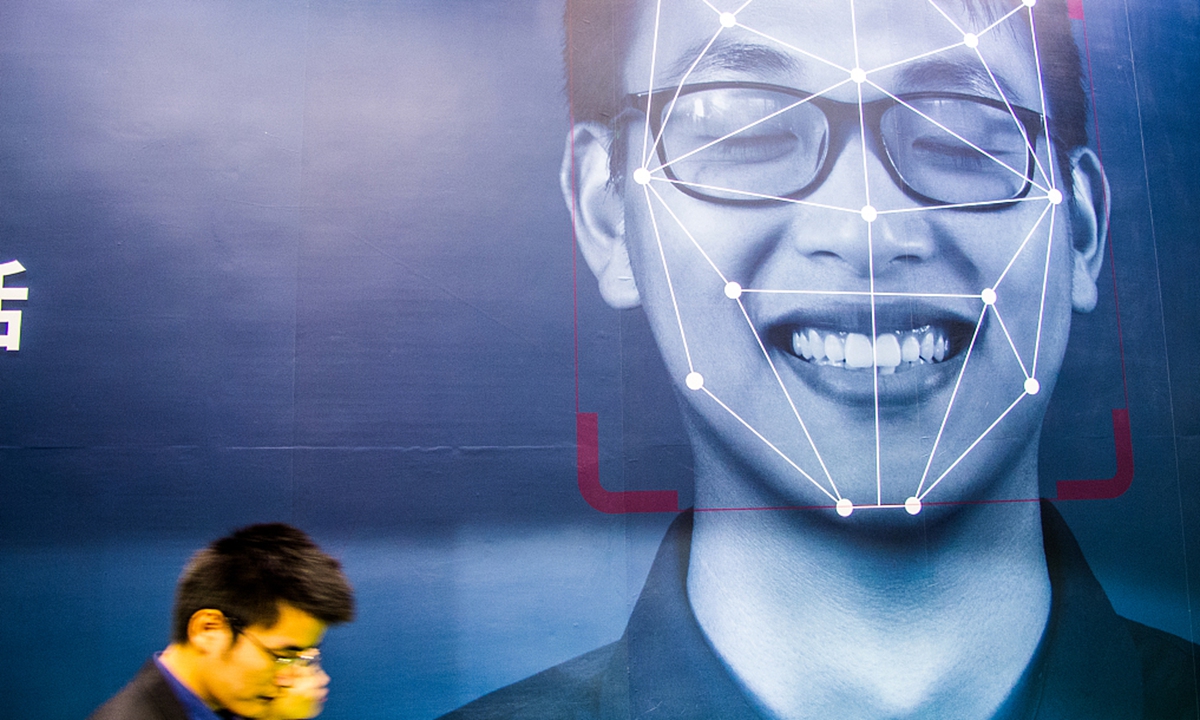Facial recognition systems boycotted at some Chinese cities’ residential communities

Facial recognition Photo:VCG
Public concerns over possible personal information abuse have been raised as residents in several first-tier Chinese cities complain that their residential communities have always scanned their faces when entering.Many residential communities in Beijing and Shanghai have reportedly installed facial recognition systems at the entrances and collected residents' facial information. The information collection has been opposed and boycotted by some residents, however, who told the Global Times that they feel their privacy is being invaded.
A resident surnamed Lin, who lives in Chaoyang district of downtown Beijing, said her residential community installed a facial recognition system without asking for the community's opinion.
"I'm anxious about my information security," Lin told the Global Times Tuesday, saying she doubts whether her community can protect the facial information it collects, as "even bank data leakage occasionally happens."
Disgusted with information such as the time and duration that one stays at home being clearly known to others, many residents have chosen to reject having their facial information collected by communities, although it may bring them other inconveniences.
In Songjiang district of Shanghai, a resident surnamed Chen said she hasn't provided her facial information since the community she lives in started installing a facial recognition system in June. "I don't think they [the property managers of the community] are eligible to collect our facial information," she told the Global Times.
There is no legal basis for communities to force residents to use the facial recognition system, legal experts said. Collecting residents' facial information without reason, which may put the information at risk of being leaked or misused, constitutes an invasion of people's privacy and right of portrait, said lawyer Shi Yuhang.
China's cybersecurity laws and the upcoming Civil Code, which will come into effect from January 2021, regulate that the collection of personal information must meet several conditions, including expressly stating the purpose, method and scope of information collected, said Shi, who is also a Certified Information Security Professional (CISP) holder.
Facing legal risks and residents' backlash, some communities have canceled or suspended the installation of facial recognition systems, or at least no longer count scanning one's face as the only method to enter, according to local residents.
Liu Zihan, who also lives in Beijing's Chaoyang district, said her community is installing the system but allows residents to enter by either having their faces scanned or swiping an access card.
Fearing possible misuse, Liu said she won't have her facial information collected by the community. "Worryingly, today there are too many apps and systems asking for our personal information," she told the Global Times. "I won't provide it unless necessary."
Personal information protection has become a popular concern in China this year, when collecting citizens' biometric data, including their facial and fingerprint information, grows increasingly common amid the COVID-19 epidemic. In Hangzhou, East China's Zhejiang Province, a draft law was submitted to the local legislature body on Monday to ban the mandatory collection of biometric information by residential communities.
It is expected to be China's first-ever law on the use of facial recognition in residential communities, if passed.
The law has positive meanings in safeguarding residents' right to choose [not to provide facial information], Shi said. "However, this is just a regional law and only works in the property management sector, which is far from perfect in protecting citizens' personal information," he told the Global Times Tuesday.
It is also needed to regulate facial information collection at a higher legal level considering its wide use in our digital era, Shi said, suggesting the future Personal Information Protection Law of China, which ended its public comment period in November, should cover this field.



